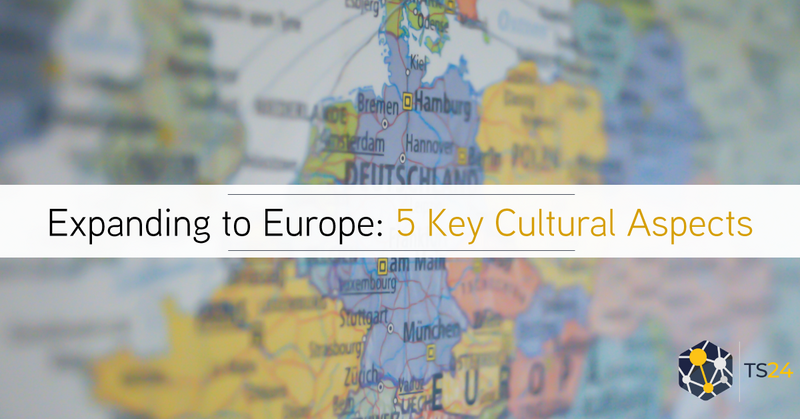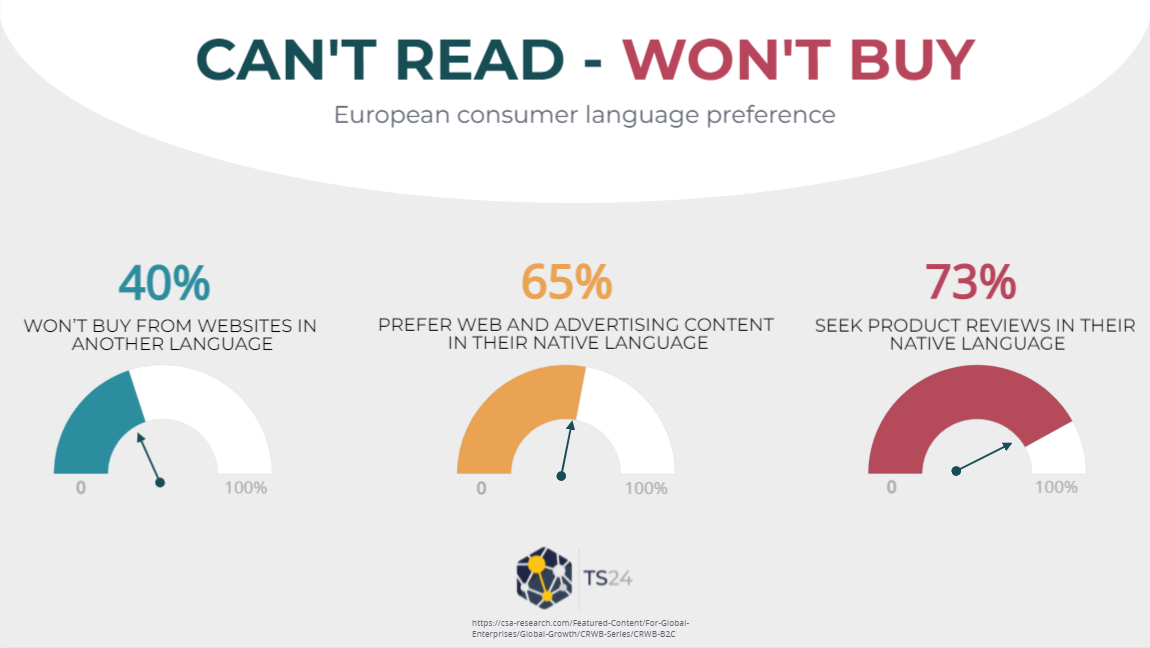5 Important Cultural Aspects to Bear in Mind When Expanding to Europe
Expanding into a new market requires thorough and functioning knowledge of the target market’s economic and political landscapes. However, a third equally important factor to consider is your target country’s culture.
Europe is a continent brimming with rich, deep, and diverse cultures. Each street corner oozes a new cultural quirk, from priceless art and iconic architecture to vigorous street life.
But why is culture so necessary for conducting business? Well, it’s marketing 101.
The sole purpose of marketing is to generate revenue by fulfilling your customer’s wants and needs. And understanding these wants and needs is a matter of understanding their culture. Not only that, but you also must consider European workplace culture, so you know how to carry yourself around your colleagues.
And, of course, there’s the matter of language barriers, which can only truly be overcome with the help of a reputable translation service agency for the European market.
With that in mind, let’s look at some significant cultural aspects to consider when expanding your business to Europe.
1. Language
Language is the most sure-fire way to appeal to a specific culture and establish your brand image and awareness.
You might be surprised to know that English isn’t the dominant language of business in Europe. The continent is home to 24 official languages and 200 unofficial languages, with German, French, Polish, Italian, Dutch, and Spanish taking the lead.
Notably, overseas consumers are now beginning to demand product information in their native language. Some headline findings from Common Sense Advisory’s “Can’t Read, Won’t Buy” research series attest to consumer’s preference for their native language:
• 40% won’t buy from websites in another language.
• 65% prefer web and advertising content in their native language.
• 73% seek product reviews in their native language
Not only that, but some countries actually have unique marketing laws that require you to translate all marketing content into their native language. An example is France’s Toubon Law.
Apart from the language, it would help if you were conversant with the appropriate tone and mannerisms in colloquial (every day) interactions. Moderating things like tone of voice, mannerisms, proper greetings, and ways to address people will help you conduct more effective business meetings, recruitment drives, and ad campaigns.
Hence, it is integral that you recruit the help of a certified translation service agency to ensure your business’s mission doesn’t get lost in translation.
2. Unique Employment Laws
Did you know that if you overwork your employers in Europe, they can actually sue you?
In many parts of the world, working overtime is typically associated with a good work ethic and a deep devotion to your job. Employers expect their workers to go above and beyond, and employees keep striving for this badge of honour.
However, such expectations come at the cost of the employer’s health and performance of tasks. Indeed, countless studies have shown how long working hours lead to stress, burnout, and physical health problems.
European corporations take employee burnout very seriously. They must since government directives have set a minimum standard for weekly working hours at 48 hours. These standards don’t exist in countries such as the US, and it’s precisely what sets apart the European business culture.
3. Workplace Etiquette
There are a number of different things to consider about European workplace etiquette. But if we had to pick one, it would have to be punctuality.
While not applicable to the entire continent, punctuality is extremely important. This is especially true in Northern Europe as well as Germanic countries.
Furthermore, workplace etiquette also comprises your conduct during workplace interactions and confrontations. For example, how formally must you speak? What about your attire? Do you address people by their first names, last names, or title?
Then, there’s the matter of dining and entertainment for business purposes. It is not uncommon for people to carry over business conversations to lunch or dinner, usually accompanied by alcohol. Receiving or extending a business dinner invitation is a sign of respect, and refusing an invitation is impolite.
4. Ethnic Diversities
While some European countries have been very vocal about their intolerance towards immigrants, Europe as a whole is actually very ethnically diverse.
As such, you’re not just appealing to one ethnic group but a whole range of groups with their own cultures, values, religion, etc. This means you need to modify and market your products and services across cultural lines. A study conducted by the Advertising Association reveals why this is important.
According to the report, more than half of the UK’s Black, Asian, and minority ethnic population (BAME) prefer brands that represent their culture meaningfully. At the same time, nearly half of the respondents prefer to buy from brands that advocate for cultural diversity in their marketing efforts. These figures are only projected to grow.
Furthermore, ethnic diversity also means linguistic diversity. This is why you should consider all translation avenues, including German, French, Dutch, Italian, and Spanish language translation.
When expanding into any European country, using reputable translation services will help you assimilate into the specific culture readily.
5. Technology and Material Culture
Technology has swiftly become an integral element of culture. Indeed, technology directly influences how society structures its economic activity.
Take, for example, the market share of black-and-white television in the US versus Europe. For the first decade, the market share was much higher in the US than in Europe.
The type of technology and communication channels that your target market’s stakeholders predominantly use will help you decide the best avenue for marketing and advertising.
Conclusion
In today’s globalized economy, cultural sensitivity is crucial.
Europe is home to some of the best countries to conduct business, including Germany, Ireland, the Netherlands, Norway, and Sweden, to name a few. It grants access to a diverse market and talent pool and the free movement of goods and services in EU member countries.
However, to access Europe’s economic hub, you need to understand and respect their unique cultural environments. Keep in mind that the best way to infiltrate any culture is through its language. This is why your first order of business should be employing translation services for the European market.



